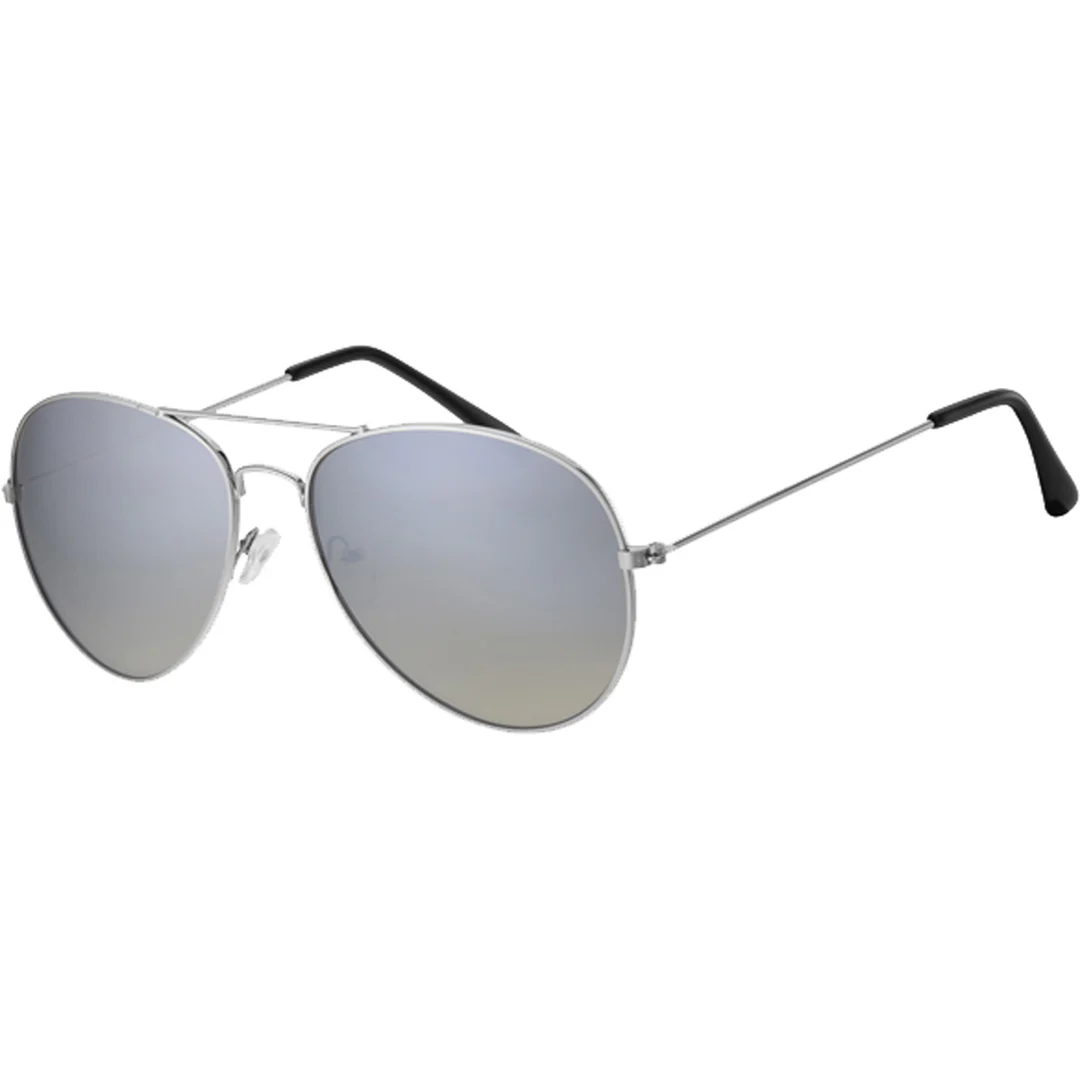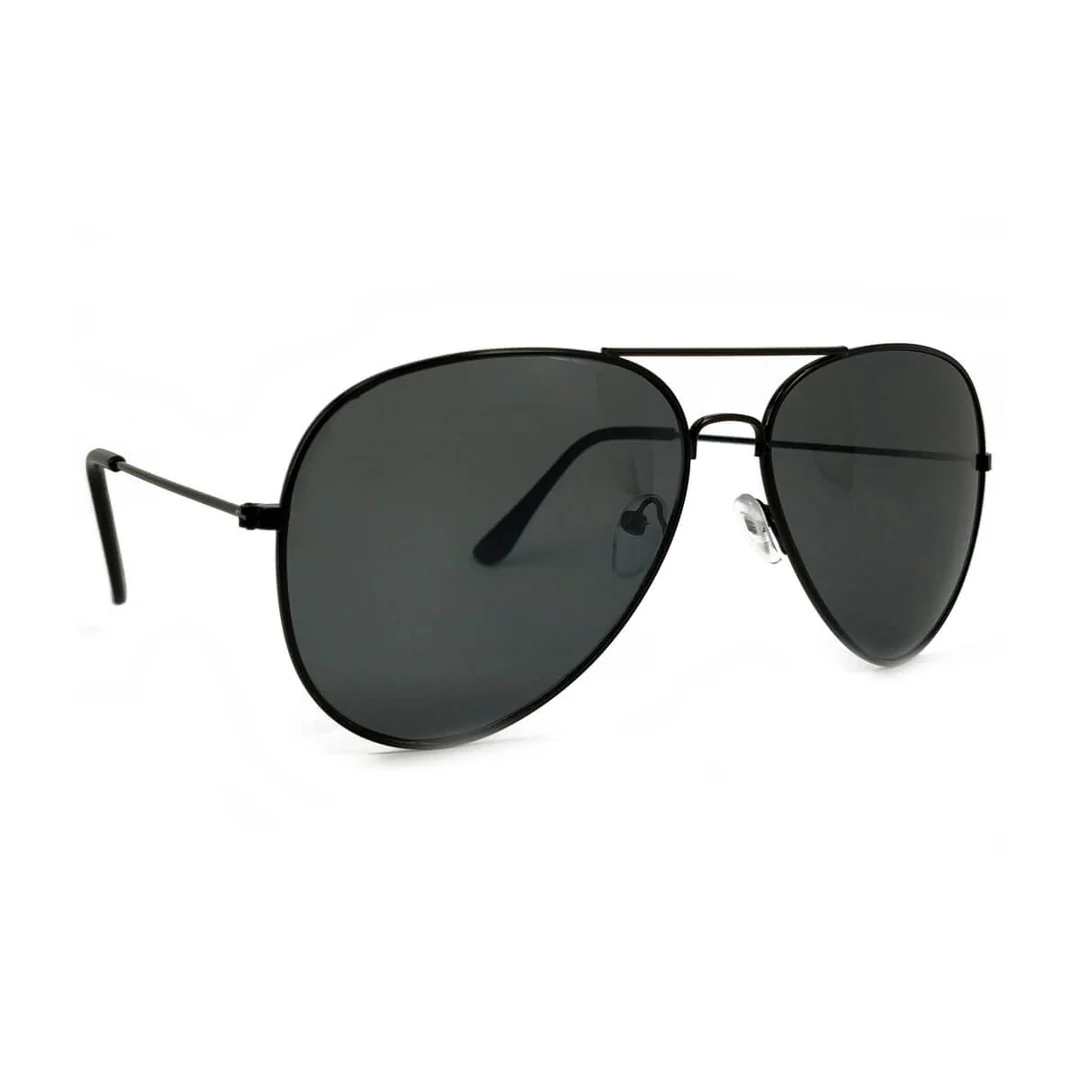UV protection 100%
UV radiation is invisible radiation that comes from the sun. It can cause eye damage such as sunburn, dry eye and eye diseases such as cataracts. UV protection for sunglasses is especially important in summer and sunshine, but also in winter when sunlight reflects off the silicon of snow and ice.
Protecting your eyes from the sun's UV rays is important, but wearing glasses is often also a matter of fashion. The EU directive requires all sunglasses sold in the EU to have 100% UV protection (UV400), as evidenced by the CE mark on the frame of the sunglasses. CE approval means that Sunglasses meet all EU requirements for sunglasses (EN ISO 12312-1:2013).
Protecting children's eyes is particularly important because the lens of a child's eye allows more UV radiation to pass through than an adult's and the radiation can penetrate the retina, degenerating it. Dear Sunglasses are large and also protect against UV radiation from the side. The UV 100% or UV 400 mark on sunglasses indicates that the glasses completely filter out UV radiation.
CAT rating for sunglasses
The glare protection of sunglasses is an important factor when choosing the right sunglasses. The purpose of glare protection is to filter out excess sunlight and prevent eye fatigue and glare. Glare shields use the CAT (Category) rating, which classifies the light transmission percentage of the lenses. Glare protection and UV protection are two different things.
- CAT 0 - Image lenses: Sunglasses have clear or light-coloured lenses. They usually resemble spectacles, which is why they are called imagoglasses. Sunglasses These are called lenses and are therefore known as spectacles. They allow 81-100% of the sun's rays to pass through. They do not protect against glare, but they do have UV protection in accordance with the EU directive.
- CAT 1 - Cloudy weather lens: 44-80% light transmission. These are well suited for cloudy weather with little sunshine. Glasses from have UV protection according to the EU directive
- CAT 2 - Semi cloudy weather lens: Light transmission 19-43%. These lenses are usually used on cloudy or partly cloudy days.
- CAT 3 - A sunny and clear weather lens: This category of aurora glasses is best for normal use. They filter 9-18% of the light, giving good comfort even on sunny days.
- CAT 4 - Dark lenses: These glasses are usually used on very sunny days or in conditions where extra effective eye protection is needed. The light transmission percentage is only 3-8%. The lens is so dark that these sunglasses should not be used, for example, when driving a car.
The cat-rating of sunglasses should be taken into account, especially on sunny days and in conditions where sunlight is particularly intense. Different cat-rated glasses offer different levels of eye protection and are designed for different conditions. It is important to choose the right cat category to suit your needs and always wear glasses when necessary. Filters that are too weak do not protect the eyes sufficiently from the harmful effects of the sun, and filters that are too strong can interfere with vision and colour rendition.





























